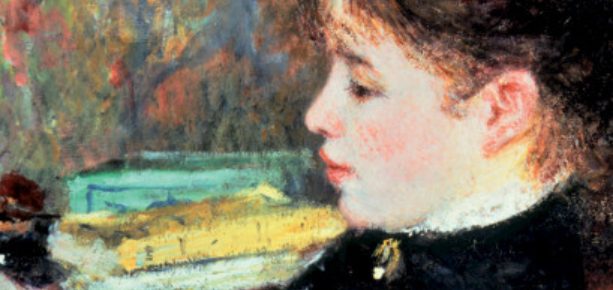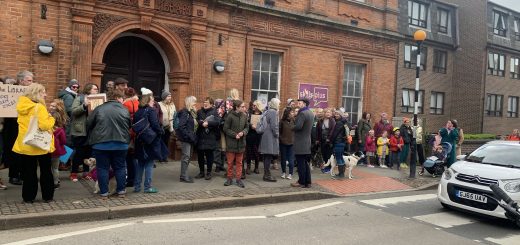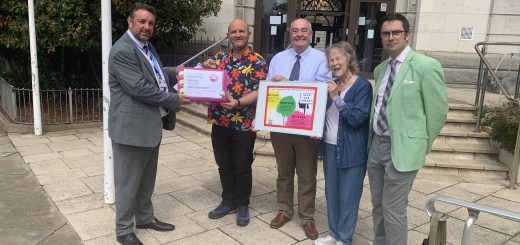Women and the Library

Professor Carolyn Oulton of Canterbury Christchurch University finds yet another entertaining and thought-provoking insight into the story of Grace Hill Library….

Stop me if you’ve heard this one before.
Young woman to her brother,
‘Silence, we’re IN THE LIBRARY.’
Child answers,
‘They must have hidden the sign in the ladies’ reading room.’
Actually this joke from a Victorian journal tells us something genuinely important – there actually was a reading room in the Folkestone library set apart for women’s use. Indeed the floor plan in the library’s archives confirms that it was part of the original design.
There were also lavatory facilities, making it easier for women to visit the library and museum for extended periods at a time when entering a restaurant unaccompanied and asking ‘If I could just…’ was not a respectable option.
We know from first-hand reports that of the people who attended the opening of the library in 1888, a large proportion were women. We know too that they valued the opportunities it gave them. One ‘who had appreciated the benefits of the Reading Room’ sent in a postal order for £5 in 1889. Another, a teacher called Annie L. Dorman, offered to give lectures on botany to raise funds. When ‘a lady’ who paid rates through her landlord (and so was not technically a qualifying ratepayer) was refused a book, her cause was taken up in the local press.
As well as donating and reading books and raising funds, women were employed as assistants to the librarian, giving them an alternative to the traditional middle-class career paths of teaching and nursing. A Miss Condy helped with the first alphabetical card catalogue as a volunteer in 1893. Mabel Ryall, the Junior Assistant in 1900, was the Assistant Librarian by 1907 with a female assistant working under her. She was appointed as the new librarian in 1926, when a resolution was taken to appoint a female library assistant of 25-35 years of age with a starting salary of £150. In the same year the library found itself at the centre of an unexpected controversy. A well-wisher had tried to donate a biography of Dr Marie Stopes the birth control pioneer. The offer was refused – even though the book made no reference to birth control.
Decisions made about the library did not always meet with the approval of locals, who were – then as now – quick to speak up when they felt they had not been consulted. We know that these debates involved women, from the records of the library itself. It was a group of working women who protested against the early rule excluding non-ratepayers from borrowing books.
The local press was as ever on their side, urging the council to remember:
“It is a matter of the supremest importance from an educational and mind-expanding,
let alone a healthy recreative point of view,
that the young people of this town should have free access to the books of the Free Library.
The volumes may be neither too numerous nor too varied,
but such as they are, don’t let us keep them on the shelves unread
when those to whom their perusal will give considerable pleasure
are asking for what will do nobody harm and themselves an infinite deal of good.“




Interesting article showing the gradual realisation that common sense, over time, will always win out over bigotry and exclusion. Books, and the access to them, are for all of society. Society benefits. We need libraries.
Interesting about the “Lavs”because they were unavailable unless you asked for a key, the last time I requested(many years ago). Often out of order recently. We’ve gone backwards.
When we get the building back, re-jigged and re-organised and filled with facilities for everyone and everything. lavs will be a priority item.